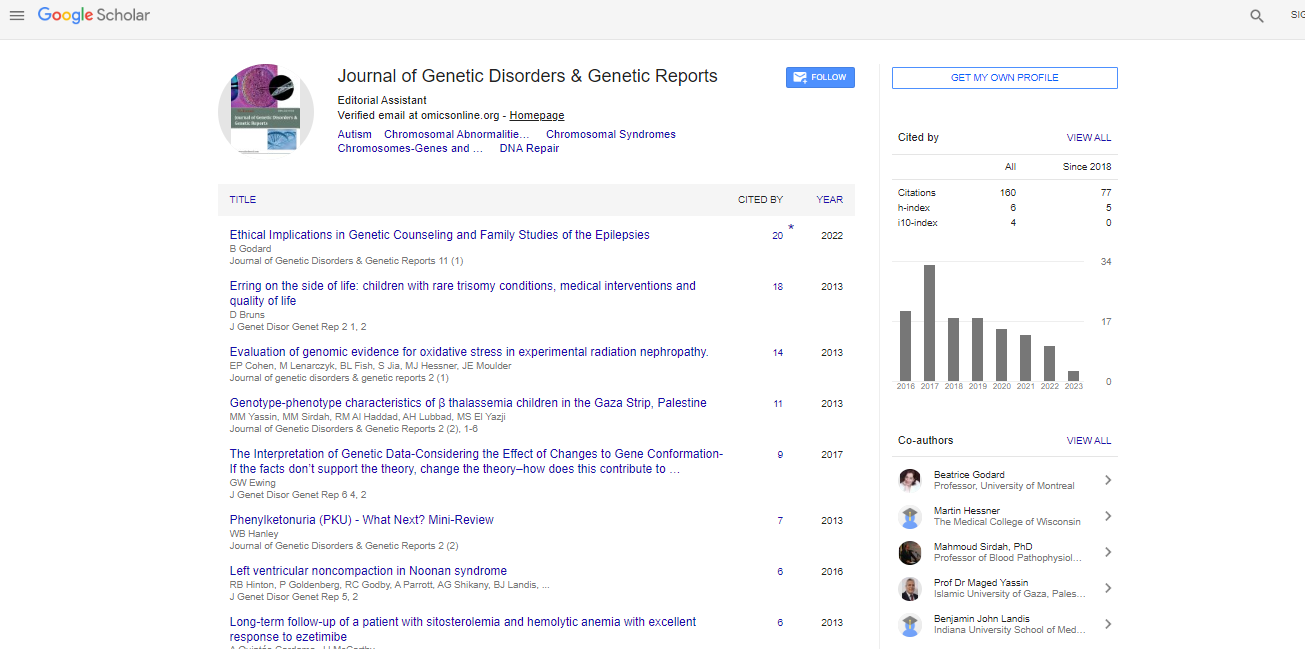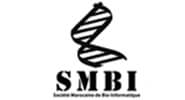Research Article, J Genet Disor Genet Rep Vol: 4 Issue: 1
CGH Array Based Case Report of a Patient Suffering with Amelogenesis Imperfecta, Jalili Syndrome, Situs Inversus and Oligozoospermia
| Neetu Singh1*, Dinesh Kumar Sahu2, Parth Purwar3, Sanjeev Gupta4, Anil Kumar Tripathi5, Jaya Dixit3, Ravi Kant6 and Devendra Kumar Gupta1,7 | |
| 1Advanced Molecular Science Research Center for Advance Research, King George's Medical University, Lucknow, India | |
| 2Imperialls Life Sciences Private Limited, Gurgaon, Haryana, India | |
| 3Department of Periodontology, Faculty of Dental Sciences, King George's Medical University, Lucknow, Uttar Pradesh, India | |
| 4Department of Ophthalmology, King George's Medical University, Lucknow, Uttar Pradesh, India | |
| 5Department of Clinical Hematology, King George's Medical University, Lucknow, Uttar Pradesh, India | |
| 6Department of Surgical Oncology, King George's Medical University, Lucknow, Uttar Pradesh, India | |
| 7Department of Pediatric Surgery, All India Institute of Medical Sciences, New Delhi, India | |
| Corresponding author : Neetu Singh Advanced Molecular Science Research Center Center for Advance Research, King George's Medical University, Lucknow-226 003, Uttar Pradesh, India Tel: +91 5222258988; Fax: +91 5222257539 E-mail: neetuaashi@yahoo.com |
|
| Received: December 21, 2014 Accepted: December 31, 2014 Published: January 02, 2015 | |
| Citation: Neetu S, Dinesh KS, Parth P, Sanjeev G, Anil KT, et al. (2015) CGH Array Based Case Report of a Patient Suffering with Amelogenesis Imperfecta, Jalili Syndrome, Situs Inversus and Oligozoospermia. J Genet Disor Genet Rep 4:1. doi:10.4172/2327-5790.1000122 |
Abstract
CGH Array Based Case Report of a Patient Suffering with Amelogenesis Imperfecta, Jalili Syndrome, Situs Inversus and Oligozoospermia
A 35 year old male patient with family history of dental and ocular features, presented with chief complaint of discolored teeth since childhood and inability to see clearly during daytime reported to the O.P.D of Periodontology, King George’s Medical University, Lucknow, Uttar Pradesh. Henceforth, we suspected the presenting medical condition as syndromic and following investigations were carried out to establish the definitive diagnosis of the case so that appropriate management can be rendered to the patient as well as family members. Routine blood investigations, orthopantomogram (OPG), anterior segment and posterior segment examination was carried out. Advanced macular visualization on spectral domain optical coherence tomography (SDOCT) of retina was also performed. Additionally, chest X-ray and ultrasonography of whole abdomen (USG- abdomen) were also performed. To corroborate the phenotypic disorders with genotype, array based Comparative Genomic Hybridization (aCGH) was performed on the patient’s blood. Through Dental (clinical and radiographic), Opthalmic, X-ray/Ultrasound and Laboratory diagnosis diagnosed the patient as a phenotype with co-morbid occurrence of X-linked Hypoplastic Amelogenesis Imperfecta, Jalili Syndrome, Situs Inversus with oligozoospermia respectively. Further, through aCGH, the identified Copy Number Variations corroborated with the phenotypic features and were also reported in Decipher Database. Hence, the present case with multiple disorders (affecting multiple organs) suggest multi- factorial etiology involving Decipher Database reported MIR4424, NTRK1, UGT2B15 MSR1 PAK6 MIAT, ARHGAP4, XG and novel MIR1256, TMSB15B, H2BFXP, H2BFWT, H2BFM genes.
 Spanish
Spanish  Chinese
Chinese  Russian
Russian  German
German  French
French  Japanese
Japanese  Portuguese
Portuguese  Hindi
Hindi 



